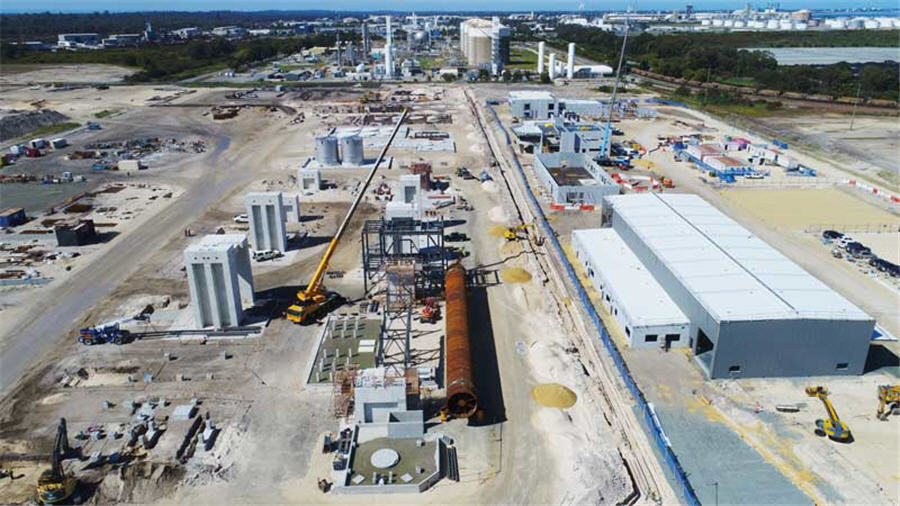
The clock is ticking for Tianqi Lithium Corp. to haul itself out from under a massive debt burden that sees it needing to come up with $1.88 billion by the end of this month.
Tianqi has faced a growing cash crunch this year as losses mounted amid a slump in lithium prices. It’s warned of potential defaults since April, has missed 471 million yuan ($71.5 million) in interest payments this year, and is seeking strategic investors and mulling asset sales as its troubles build.
And all the while, the giant November repayment has loomed. That obligation stems from the $4.1 billion stake it bought in Sociedad Quimica y Minera de Chile SA in 2018 — at the height of the lithium-price boom — in a highly leveraged acquisition funded by $3.5 billion in loans.
Tianqi has faced a growing cash crunch this year as losses mounted amid a slump in lithium prices
Tianqi on Friday reiterated that it risks defaulting on the $1.88 billion due at the end of November and creditors haven’t yet approved a request to extend the loan. Shares fell as much as 10% on Monday. The company declined to comment beyond last week’s statement. China CITIC Bank Corp., the major lender of the syndicated financing, didn’t immediately respond to a request for comment.
“Tianqi is on the brink of bankruptcy if it fails to repay or refinance the debt,” said Dennis Ip, head of energy research, and Leo Ho, an analyst at Daiwa Capital Markets Hong Kong Ltd., “If we have to rank the possibility for now, we think loan extensions is most likely” and that may be a means to buy time for strategic investment, they said.
Citigroup Inc. last month put a 50% probability on Tianqi raising equity, a 25% probability the company sells its SQM stake, and another 25% chance it sells its stake in the Talison joint venture with Albemarle Corp.
Adding to the company’s woes, lithium prices remain near the lowest in five years as the coronavirus pandemic exacerbates recent oversupply, even as the long-term outlook for electric vehicles remains robust.
Tianqi reported a 406.7 million yuan loss in the three months ended Sept. 30, which followed a first-half loss. There’s a possibility the Shenzhen Stock Exchange will implement a de-listing risk warning if audited net profit is negative for two consecutive fiscal years.
There’s also concerns about production, with Tianqi suspending or slowing all projects under construction. The company has also said it’s negotiating with suppliers and customers to reduce inventory and adjust payment and collection times.
“Market demand for high-end lithium hydroxide has picked up alongside the trend for EV vehicles with higher energy density,” and Tianqi lags behind its peers in the production layout for lithium hydroxide, said Chen Guanghui, analyst at Beijing Antaike Information Co. Capacity construction at its Kwinana project has also missed expectations, he said.
The Kwinana refinery project in Western Australia has stalled amid litigation and liquidity risks arising from a dispute with a contractor.
Tianqi’s management has also been in the spotlight. Chairman Jiang Weiping, Chief Financial Officer Zou Jun and ex-President Wu Wei — who left in August citing personal reasons — were reprimanded by the Shenzhen bourse in September over a “relatively significant” discrepancy between its revised full-year earnings forecast and the results it disclosed.
Additionally, Du Kunlun, an independent director, declined to sign off on the company’s annual report, citing doubts over the management of overseas assets and investments, and questioned the effectiveness of internal controls. He resigned in September citing a change in job tasks and “limited energy”.
“Even if the company manages to solve the immediate financial issues, cash flow pressure may be here to stay for the short term,” said Beijing Antaike’s Chen. Still, lithium prices are stabilizing in China and there’s upward momentum for the next year as economic growth recovers and a push toward EVs accelerates. Tianqi Lithium may be able to benefit if it manages to get through the crisis, he said.
(By Annie Lee)
Comments